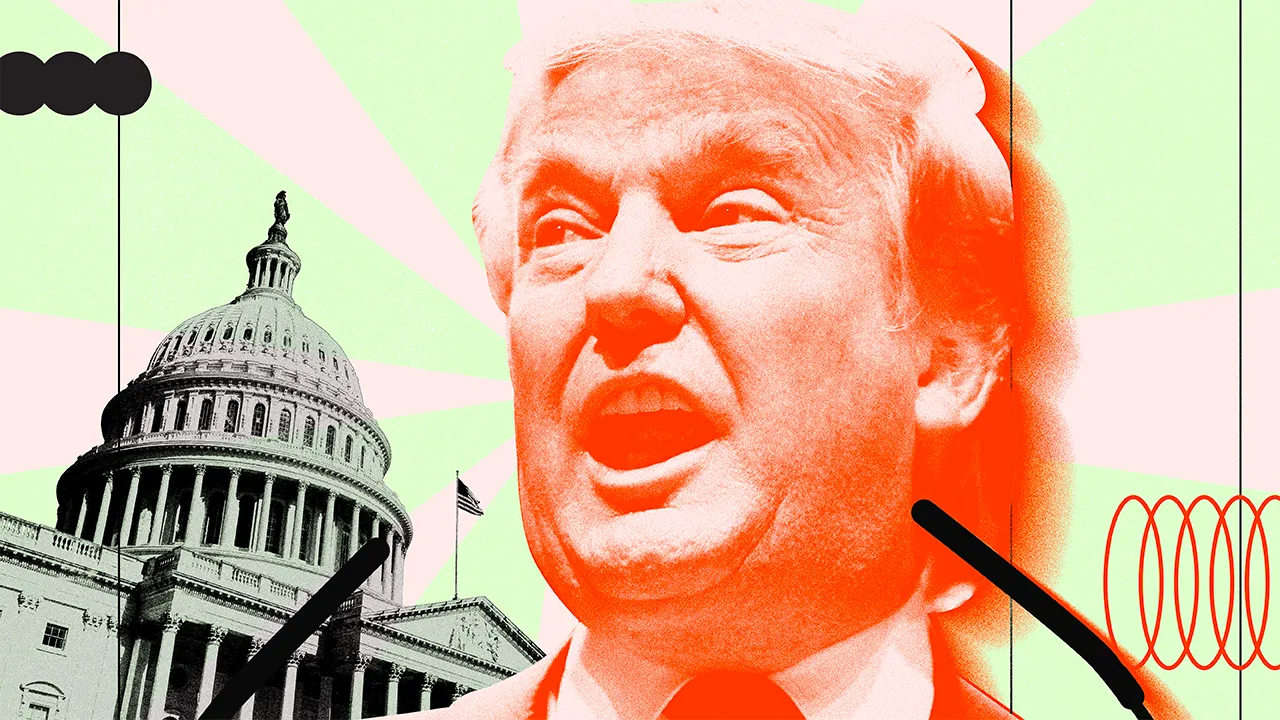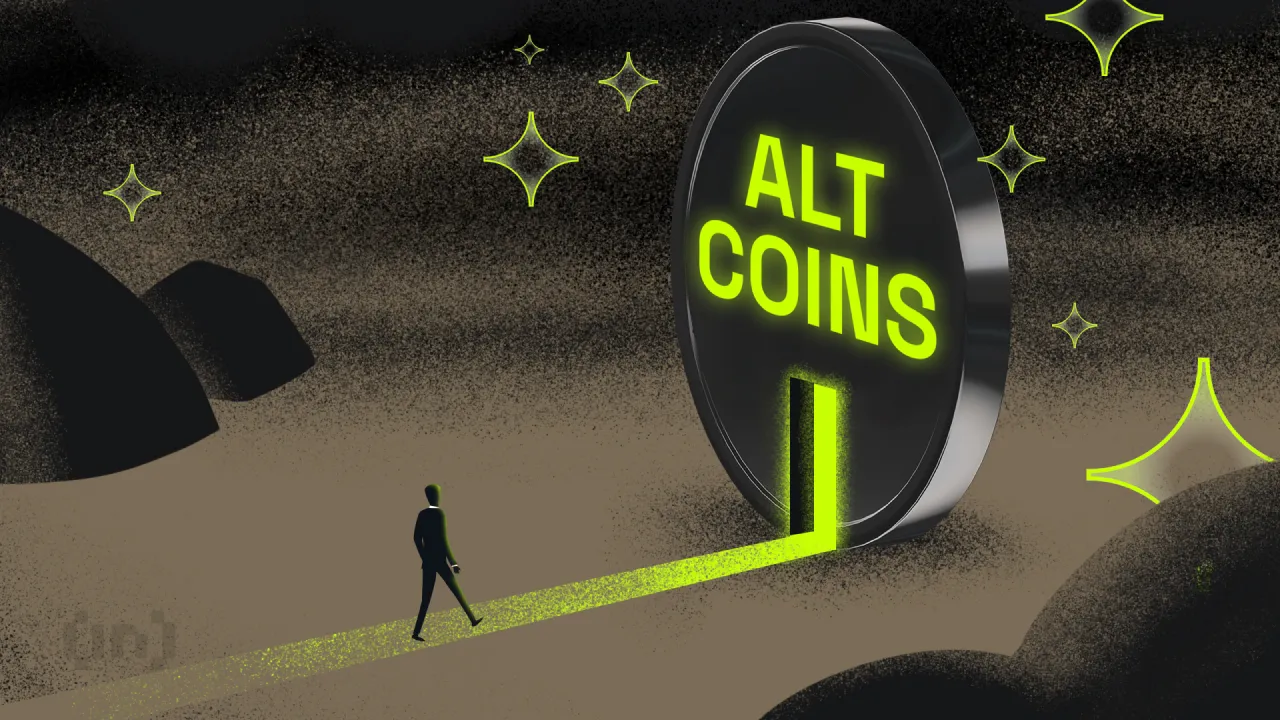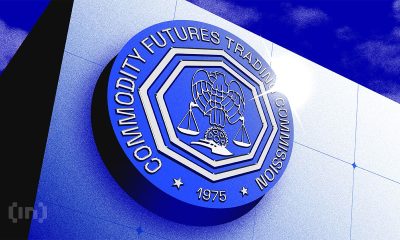Regulation
US Lawmakers Investigate Debanking Of Crypto Companies

The US government under Joe Biden has allegedly been stifling the crypto industry through the process of debanking, which experts labeled “Operation Chokepoint 2.0.” With Donald Trump’s re-election, the crypto industry expects a reform that will lead to the US banking industry embracing cryptocurrencies. US lawmakers have set sight on the government’s regulatory overreach, sparking investor enthusiasm.
In a recent development, the US Committee on Oversight and Government Reform has initiated investigations on the alleged debanking of crypto companies and individuals. While debanking refers to the isolation of crypto firms from the banking sector, the US lawmakers’ move intends to put an end to the authority’s indirect control over the crypto space.
US Oversight Committee Probes into Operation Chokepoint 2.0
According to a Forbes report, the US Oversight Committee has launched investigations on the “improper debanking” of individuals and organizations related to crypto. Under the leadership of Chair James Comer (R-Ky.), the Committee aims to collect testimonies from affected individuals and companies.
On Friday, the US Oversight Committee sent a letter to industry leaders, revealing their investigation plans. By examining the groups claiming to be debanked, the committee seeks to determine whether the trend is driven by their independent decisions or by government overreach.
Industry Leaders Allege Government’s Indirect Control Over Crypto
The term “Operation Chokepoint” could be traced back to former President Barack Obama’s reign when financial services were restricted for high-risk industries. Reflecting on the term, Andreessen Horowitz co-founder Marc Andreessen called the process of debanking during the Biden era “Operation Chokepoint 2.0.”
Industry experts like Coinbase CEO Brian Armstrong and CLO Paul Grewal corroborated Andreessen’s comments. Grewal posited, “Financial regulators have used multiple tools at their disposal to try to cripple the digital-asset industry.”
Chokepoint 2.0: SEC’s Aggressive Regulation Sparks Backlash
Notably, Uniswap Labs Founder Hayden Adams complained that his bank accounts were closed without prior notice. He added, “I know many individuals and companies who have been similarly targeted simply for working in the crypto industry.”
Similarly, Brian Armstrong revealed that banks closed ties with more than 30 tech companies. He added that the US SEC and former Chair Gary Gensler attempted to “unlawfully kill our [their] entire industry.” He also addressed it as the Biden government’s “most unethical and un-American” action.
Meanwhile, Ripple’s CTO, David Schwartz, described Operation Chokepoint 2.0 as the government’s “indirect” regulation of the crypto industry.
Investigation on Debanking: What To Expect?
Reportedly, more than 120 crypto hedge funds were debanked over the past three years. While real estate and private credit investors enjoyed banking services, crypto hedge funds were denied the same facilities. As cited by the committee, First Lady Melania Trump shared her personal experience of being debanked, which she attributes to political bias.
With an active investigation, the Oversight Committee intends to protect crypto users and traders from unfair government control. The agency envisions ensuring an unbiased crypto trading atmosphere in the United States and thereby terminating Operation Chokepoint 2.0. The unredacted FDIC files that Coinbase secured will undoubtedly be useful in this investigation.
US Banks Remain Ready To Embrace Crypto
Recently, Circle CEO Jeremy Allaire expressed optimism about the future of crypto, anticipating that banks will soon facilitate cryptocurrency trading. He believes that Trump’s new crypto policies will cease Operation Chokepoint 2.0, collaborating with the banking industry.
At the same time, Bank of America’s CEO Brian Moynihan expressed the US banking industry’s willingness to accept cryptocurrencies. Wall Street giants are also eying the crypto market. They seek to make a strategic entry into the space to tap into its immense opportunities.
Disclaimer: The presented content may include the personal opinion of the author and is subject to market condition. Do your market research before investing in cryptocurrencies. The author or the publication does not hold any responsibility for your personal financial loss.
Regulation
USDC Issuer Circle Set To File IPO In April, Here’s All

USDC issuer Circle is reportedly set to file its initial public offering (IPO) in April as part of the firm’s plans to finally go public. The stablecoin issuer is allegedly already working with top financial institutions to achieve this move.
Circle To File IPO In Late April
According to a Fortune report, Circle is looking to file its IPO in late April, although the listing period remains uncertain. The report noted that when a company files to go public, its shares usually begin trading four weeks later, indicating that the listing could occur in May. However, there is also a scenario where the IPO process could drag on for months.
The stablecoin issuer is reportedly working with investment banks JPMorgan Chase and Citi to achieve its long-anticipated IPO. The firm had previously tried to go public in 2021 under a SPAC arrangement with a shell company.
The US SEC failed to sign off on this arrangement back then, and the company eventually scrapped these IPO plans by the end of 2022 when the crypto exchange FTX collapsed and the broader crypto market experienced a downturn.
Revelation about Circle’s IPO plans comes just days after the stablecoin issuer partnered with NYSE’s parent company to explore USDC’s use in traditional finance (TradFi). Meanwhile, the USDC stablecoin recently launched in Japan following approval from the country’s regulator. Notably, USDC is the first and only global dollar stablecoin approved under Japan’s stablecoin framework.
An Easier Path Now For The Stablecoin Issuer
Circle will likely face less resistance for its IPO plans under the current SEC administration. Under acting Chair Mark Uyeda, the Commission has shown its willingness to work hand in hand with crypto firms, which was missing under Gary Gensler’s administration.
US SEC Chair nominee Paul Atkins has also shown his willingness to change the approach that Gensler’s administration adopted towards crypto firms. During his nomination hearing, the SEC Chair nominee promised to prioritize providing regulatory clarity for the industry.
Circle’s IPO listing would be the biggest since the top crypto exchange Coinbase went public in 2021. Interestingly, Coinbase owns an equity stake in the crypto firm.
The firm’s USDC is currently the second-largest stablecoin by market cap, only behind Tether’s USDT. The stablecoin industry is heating up as more financial institutions look to develop their own stablecoin.
Donald Trump’s World Liberty Financial recently revealed plans to launch its USD1 stablecoin, while asset manager Fidelity is also considering doing so.
Disclaimer: The presented content may include the personal opinion of the author and is subject to market condition. Do your market research before investing in cryptocurrencies. The author or the publication does not hold any responsibility for your personal financial loss.
Regulation
Japan Set To Classify Cryptocurrencies As Financial Products, Here’s All

Cryptocurrency investors in Japan are bracing for impact following a plan to reclassify digital assets as financial products. While the plan has elicited excitement from cryptocurrency enthusiasts in the Far East, the ambitious plan will have to scale several legislative hurdles.
Japan Targets Reclassification Of Cryptocurrencies As Financial Products
According to a report by Nikkei, Japan’s Financial Services Agency (FSA) is inching toward classifying cryptocurrencies as financial products. Per the report, the FSA intends to achieve the reclassification via an amendment to the Financial Instruments and Exchange Act.
Currently, digital assets in Japan are considered crypto assets conferred with property rights and seen as payment means. Under the FSA’s plans, cryptocurrencies in Japan will be treated as financial products in the same manner as traditional financial products.
The FSA says it will adopt a slow and steady approach toward the reclassification, carrying out “a private expert study group” to test the waters. If everything goes according to plan, the FSA will submit the amended bill to Parliament in early 2026.
The classification of cryptocurrencies as financial products will have far-reaching consequences for the local ecosystem. Experts say treating cryptocurrencies as financial products will bring Japan closer to a crypto ETF launch amid a changing regulatory landscape.
Furthermore, the move may lower current cryptocurrency taxation for local investors since existing capital market rules will apply to the asset class.
A Fresh Bill For Crypto Insider Trading Is Underway
Apart from the reclassification, the FSA disclosed plans for new legislation against insider trading. The move flows treating cryptocurrencies as financial products and will strengthen existing investor protection rules.
“It is a direction to establish a new insider trading regulation that prohibits trading based on unpublished internal information,” said the FSA. “We will develop laws to prevent unfair transactions.”
However, Japan’s cryptocurrency scene is heating up to a boil, driven by local and international players. Last week, stablecoin issuer Circle secured approval from the FSA for USDC with top exchanges set to list the stablecoin.
Japan’s Metaplanet has tapped Eric Trump to join its Strategic Board of Advisors as it continues to load up Bitcoin.
Disclaimer: The presented content may include the personal opinion of the author and is subject to market condition. Do your market research before investing in cryptocurrencies. The author or the publication does not hold any responsibility for your personal financial loss.
Regulation
Kentucky Governor Signs Off On ‘Bitcoin Rights’ Bill, Strengthening Crypto Protections


In what is being dubbed a major development in the crypto regulation space, the Governor of the US state of Kentucky, Andy Beshear, has signed the ‘Bitcoin Rights’ bill into law. The law promises to safeguard protections for Bitcoin (BTC) users.
Bitcoin Rights Bill Comes Into Effect
Crypto regulations continue to evolve under pro-crypto US President Donald Trump’s administration. In the latest development, Kentucky has become the newest state to enshrine protections for digital asset users.
In an X post published on March 24, crypto advocacy group Satoshi Action Fund announced that Governor Beshear had signed the much-anticipated Bitcoin Rights bill into law. The post stated:
The right to self-custody, run a node, and use of digital assets is now protected for millions of Americans without fear of discrimination.
The bill was first introduced to the Kentucky House by Rep. Adam Bowling on February 19. According to the bill’s description, it seeks to safeguard users’ rights to use digital assets and self-custody wallets. Additionally, it aims to prohibit local zoning changes that discriminate against crypto mining operations.
The legislation outlines guidelines for running a digital asset node and excludes digital asset mining from money transmitter license requirements. It also clarifies that crypto mining or staking is not considered an offer or sale of securities.
On February 28, the bill passed Kentucky’s House of Representatives with a unanimous vote of all 91 representatives in favor. It later passed the Kentucky Senate on March 13, receiving backing from all 37 senators.
Kentucky’s proactive stance toward cryptocurrencies isn’t new. Earlier this year, the state became the 16th US state to introduce legislation seeking to create a Bitcoin strategic reserve.
Meanwhile, neighboring state Arizona is also joining the crypto movement. A recent X post by Bitcoin Laws revealed that Arizona’s House Rules Committee has passed two Bitcoin reserve bills — SB1373 and SB1025. These bills will now head to a full floor vote.
Renewed Optimism Under Trump Administration
Following Trump’s victory in the November presidential election, cryptocurrency regulations in the US are evolving rapidly, with many states introducing legislation aimed at strengthening their digital asset ecosystems and attracting crypto businesses.
Positive changes in crypto regulations are encouraging industry businesses to expand. For instance, leading crypto trading platform Coinbase recently announced plans to hire 1,000 employees in the US.
The Trump administration has also witnessed several lawsuits being dropped against major crypto entities, including Kraken, Coinbase, Gemini, and others. At press time, Bitcoin trades at $87,399, down 0.2% in the past 24 hours.

Featured Image from Unsplash.com, chart from TradingView.com

Editorial Process for bitcoinist is centered on delivering thoroughly researched, accurate, and unbiased content. We uphold strict sourcing standards, and each page undergoes diligent review by our team of top technology experts and seasoned editors. This process ensures the integrity, relevance, and value of our content for our readers.
-

 Market19 hours ago
Market19 hours agoBitcoin Bears Tighten Grip—Where’s the Next Support?
-

 Market18 hours ago
Market18 hours agoEthereum Price Weakens—Can Bulls Prevent a Major Breakdown?
-

 Altcoin23 hours ago
Altcoin23 hours agoCardano Price Eyes Massive Pump In May Following Cyclical Patern From 2024
-

 Market9 hours ago
Market9 hours agoTop Crypto Airdrops to Watch in the First Week of April
-

 Market4 hours ago
Market4 hours agoTrump Family Gets Most WLFI Revenue, Causing Corruption Fears
-

 Altcoin9 hours ago
Altcoin9 hours ago$33 Million Inflows Signal Market Bounce
-

 Market17 hours ago
Market17 hours agoXRP Price Fate Hangs on $2.00—Major Move Incoming?
-

 Ethereum9 hours ago
Ethereum9 hours agoEthereum To $20K? Investor Says Real-World Adoption Is The Key






















✓ Share: